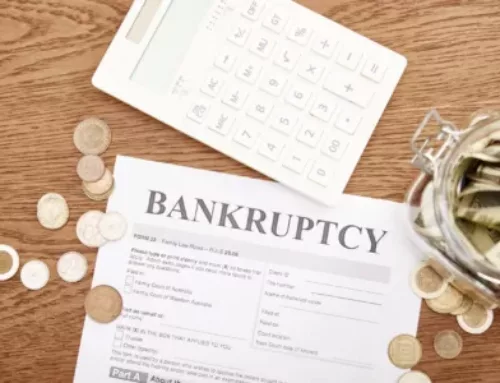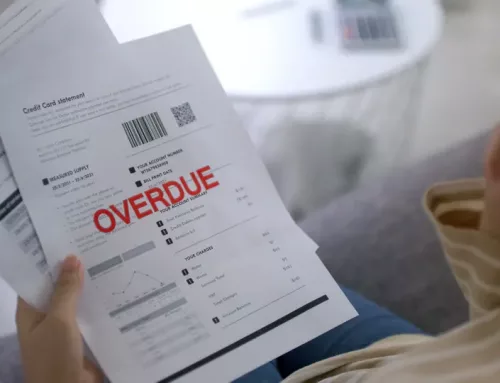Slowly but surely the country is rising from the pandemic. Sadly, it doesn’t erase the devastating effect on many Americans’ financial situation. If you’re struggling with crippling medical debt, student loan debt, tax debt, or credit card debt, filing bankruptcy under Chapter 13 of the US Bankruptcy Code can help.
In this article, we’ll discuss the advantages of filing Chapter 13, the requirements, and the steps to do so. If you have any more questions, feel free to ask our experienced Phoenix bankruptcy attorneys!
How Chapter 13 Works
A Chapter 13 reorganization is also known as a “wage earner’s plan.” Here you reorganize your debts and propose a repayment plan for these to the bankruptcy court.
Once approved, you make monthly payments to a bankruptcy trustee for three to five years, depending on your income. It lasts three years if your monthly earnings are lower than the state median, otherwise, it lasts for five. Once you’ve paid off your plan, you can get your debts discharged, meaning you no longer have any personal obligation to pay them off.
Once you file for bankruptcy, the court orders an automatic stay. This prevents anyone – individual debt collectors, collection agencies, or attorneys – to pursue any collection effort. This includes both collection calls and lawsuits.
Comparing to Chapter 7
Another common option for debtors in Chapter 7 bankruptcy. Here, the bankruptcy trustee takes your nonexempt property and liquidates them to pay off your creditors. Any debt that remains after this process gets discharged (with some exceptions, like alimony or student loans).
If you’re unsure which bankruptcy chapter fits your needs, schedule a free consultation with our skilled Phoenix bankruptcy attorneys. We’ll give you your options so you can make an informed decision. Call us now!
The Perks of Chapter 13
Whatever chapter you file offers you bankruptcy protection. However, there are key differences in how the protection works out. Read on as we discuss the advantages of Chapter 13 over Chapter 7.
Lighten the Burden on your Credit Score
Bankruptcy filings cause your credit score to dip. However, Chapter 13 is much easier to deal with than Chapter 7 in this regard. A Chapter 13 filing appears on your credit report for seven years, while it takes 10 years for Chapter 7.
These three years make a big difference for you to rebuild your credit and secure your financial future.
Prevent Foreclosure and Repossession
A Chapter 7 liquidation can delay repossession or foreclosure sales but it may not stop them completely.
A Chapter 13 payment plan gives you the chance to protect your house from foreclosure. If you include your missed mortgage payments in your plan, you can eventually catch up and keep your home at the end of the bankruptcy period!
Take note that you have to keep current with your mortgage payments or car payments as well as pay off your Chapter 13 plan monthly. Chapter 7 does not give you this option and will most likely end up with you losing your property.
Avoid Dealing with Creditors
While you enjoy Chapter 13 protection, you do not have to directly deal with your creditors. Chapter 13 works much like a consolidation loan. You just have to pay the trustee, instead of dealing with all the different creditors.
Protect your Co-Signers
Chapter 13 has a provision that also protects other parties who are liable to you. This means you don’t become too much of a burden to your co-signers, who likely are your friends and family.
Extend your Debts
Another advantage of Chapter 13 is that it allows individuals to reschedule secured debts (other than a mortgage for their primary residence) and extend them over the life of the Chapter 13 plan. Doing this may lower the payments.
How to File for Chapter 13
Eligibility
Here are the requirements you have to meet before you can file Chapter 13:
- You have a regular source of income. There is no specific income requirement. However, your income does affect how long your repayment plan lasts.
- You don’t have too much debt. You’re allowed to file for bankruptcy under Chapter 13 so long as you don’t exceed the debt limits. These are $1,256,850 in secured debt and $419,275 in unsecured debt.
- You’ve kept up with your taxes. The court usually looks at several years’ worth of tax filings before allowing you to go for Chapter 13.
- You have not filed for bankruptcy in recent years. You will not be allowed to file under Chapter 13 if you have a prior Chapter 7 filing in the last four years or a Chapter 13 filing within two years.
Steps for Filing Chapter 13
- Look for a credit counselor to discuss your options. You can also talk to a bankruptcy attorney about this as well as help you with all the needed paperwork.
- File the bankruptcy petition. Once you’ve properly filled out the forms, submit them to your local court and pay the $310 fees.
- Meet your bankruptcy trustee. This is a neutral person appointed by the court who will take a look at your case and organize a meeting of creditors.
- Attend the meeting of creditors. Here, your creditors get the chance to ask you questions about your proposed repayment plan and your debts.
- Go to your confirmation hearing. Here a judge will decide whether to accept or reject your petition. You can either push through under Chapter 13, modify your plan, or shift to Chapter 7.
- Pay monthly until your bankruptcy ends. Ask the bankruptcy trustee how you can send them your payments. Once you’ve fully paid off your plan, your eligible debts will be discharged and eliminated.
Final Thoughts
A Chapter 13 bankruptcy lets you restructure your debt so you can catch up on your missed payments. Like anything, it has its pros and cons. Whether you file under Chapter 13 depends on your specific needs. It’s best to discuss your decision with a knowledgeable bankruptcy attorney so that you can decide what’s best for you.
Our experienced bankruptcy lawyers at Phoenix Fresh Start have numerous success stories helping people rise through bankruptcy. We’ll secure your debt relief so you can get another chance at a better financial future.
What are you waiting for? Call our Phoenix bankruptcy law firm now to schedule a free consultation!












